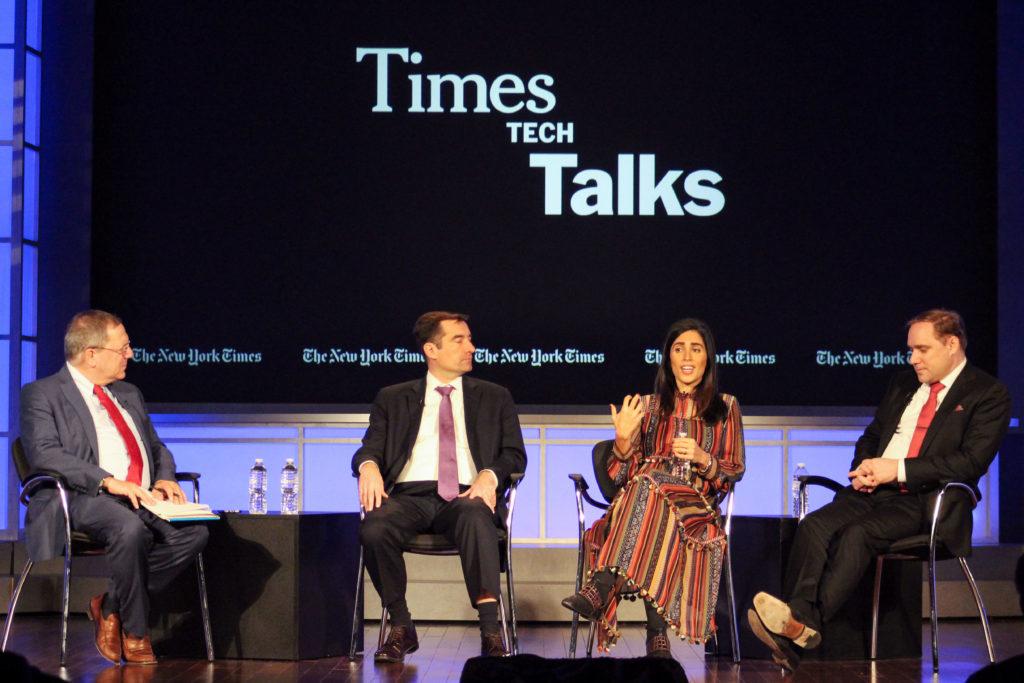A panel of technology experts discussed the methods of cyber warfare and the influence of cyber threats on elections at the Jack Morton Auditorium Tuesday.
The event, titled “Arming for Cyberwarfare,” was part of Times Talks, a live conversation series created by The New York Times, and was sponsored by the accounting firm Deloitte. David Sanger, a national security correspondent and a senior writer for The Times, moderated the discussion, which focused on cybersecurity and cyber threats to the upcoming midterm elections.
Sanger said the term “cyberwar” has increasingly entered common speech despite the United States’ relatively low state of cyber conflict. He said cyberwar’s many forms include espionage and data manipulation.
“Cyber has become the weapon of choice for nations large and small and the primary way in which they compete and undercut each other in short of war,” Sanger said.
Yasmin Green, the director of research and development for Jigsaw – a technology incubator founded by Google to combat cyber attacks – said that today’s cyber hacking, which involves co-opting social media networks, looks very different from traditional forms of hacking, like malware and phishing.
Whereas traditional forms were easily identifiable as malicious, she said modern social media hacking abides by the networks’ terms of service. Instead, its maliciousness stems from the poster’s intent, she said.
“It’s really not about hacking into networks, it’s about hacking into the conversation,” Green said.
John Demers, an assistant attorney general for the Department of Justice’s National Security Division, said the precedent set by a grand jury’s 2014 indictment of five Chinese hackers has aided the process of bringing foreign actors to justice.
“Having overcome that hurdle, I think each succeeding indictment is easier,” he said. “You’re not constantly having that policy debate. It’s now accepted that this is a tool that we can use to counter this kind of behavior.”
Demers also spoke about the justice department’s indictment Tuesday of Chinese intelligence officers who conspired to steal commercial aviation and technology data for at least five years – an event that occurred just a few hours before the panel. He said indictments like this – the third of its kind in two months – build awareness of the cyber threat.
Dmitri Alperovitch, a co-founder of the cybersecurity company CrowdStrike, discussed the possible cyber impact on the upcoming midterm elections. He said there is still the chance of external interference in the remaining week before the election, so he will be more relaxed the day after the election.
“There’s still time, and I think that we should not be complacent and, in particular, we should not look at 2016 and assume that whatever we will see going forward this year or in 2020 will look exactly the same,” Alperovitch said.
Alperovitch emphasized that the potential solutions to cybersecurity threats were temporary because of rapidly evolving technologies, like machine learning and artificial intelligence, as well as the uncertainty surrounding the human operator guiding cyber attacks.
“Cybersecurity is all about a cat-and-mouse game,” he said. “It is the one field of technology that we will never solve because it’s all about humans on the other end.”





